After-sales service: efficiency in the service of customer satisfaction

After-sales support is a service provided by a company to customers after the purchase of a product or service. It is a crucial element of the customer experience and can significantly impact customer satisfaction and the company's reputation itself.
It is a fundamental process for companies involved in:
- Design and implementation of systems
- Design and implementation of infrastructures
- Project services
aimed at ensuring service continuity even after testing.
The key points and scenarios to manage in this type of business are numerous, here are some:
Service Contract
Defining a service contract with the customer is the first step in determining the conditions. For example, a comprehensive periodic fee may be envisaged, or an hourly rate with consumption billing. Additionally, warranty periods can be provided for each sold system/product.
Management and Planning of Interventions
Service requests can be generated by a phone call or through innovative tools that empower the customer to independently book interventions via a web app. Planning must consider urgency and the type of intervention to involve resources with the right skills. Collecting feedback at the appointment's closure becomes increasingly important for customer loyalty.
Spare Parts Service
After-sales service also includes spare parts management. Companies can have excellent margins by supplying spare parts for their products. Maintaining accurate inventory and responding quickly to spare parts requests is essential to satisfy customers and generate profits.
Warranty
When a customer reports a problem or defect, the support team must respond promptly and resolve the issue. Post-sales warranty is crucial to ensure customer satisfaction and product compliance.
Repair
System components may require repair, which can be managed either internally or by sending the component to a third-party supplier.
Active Billing
Depending on the conditions specified in the contract, billing may be periodic (fixed), for each individual intervention (consumption), or a combination. Thanks to the contract conditions and after closing the service intervention and sending the work report to the customer, the sales invoice must then be issued.
Monitoring of Service Contract
A crucial point on which company profitability depends is monitoring the trends in costs and revenues related to a specific service contract. Keeping control over the contract's profitability is useful for the company to make informed decisions in case of inefficiencies.
Effective after-sales support can increase customer loyalty, generate positive referrals, and improve the overall reputation of the company in the market.
With So Smart, this process is managed completely from contract definition to monitoring the progress of the service order, thanks to simple and intuitive tools, starting right from the homepage that guides the user on tasks to be done with simple KPIs and quick actions:
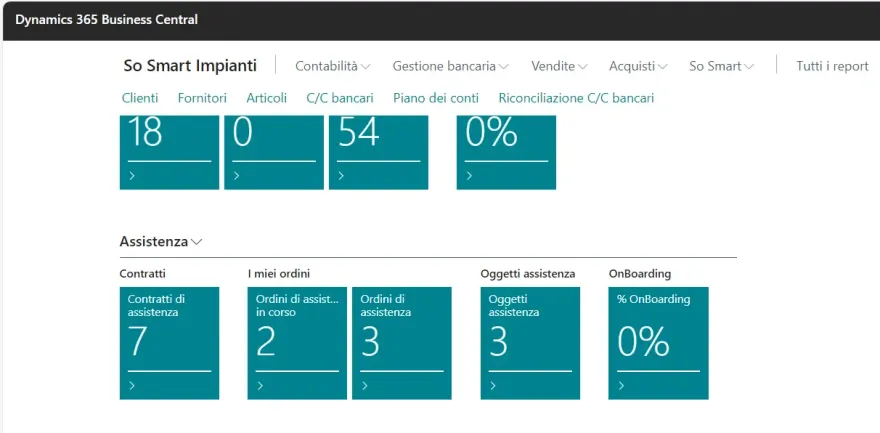
Support contracts
In Dynamics 365 Business Central (with So Smart), the contract becomes a service order with all the benefits of planning, execution, and analysis from the project module, coupled with integration with service orders and the definition of the service object.
This object represents the system/product sold, for which the intervention will be scheduled. A serial number can be associated with it, and all its components can be registered, each assigned a serial number, ensuring perfect traceability of the products.
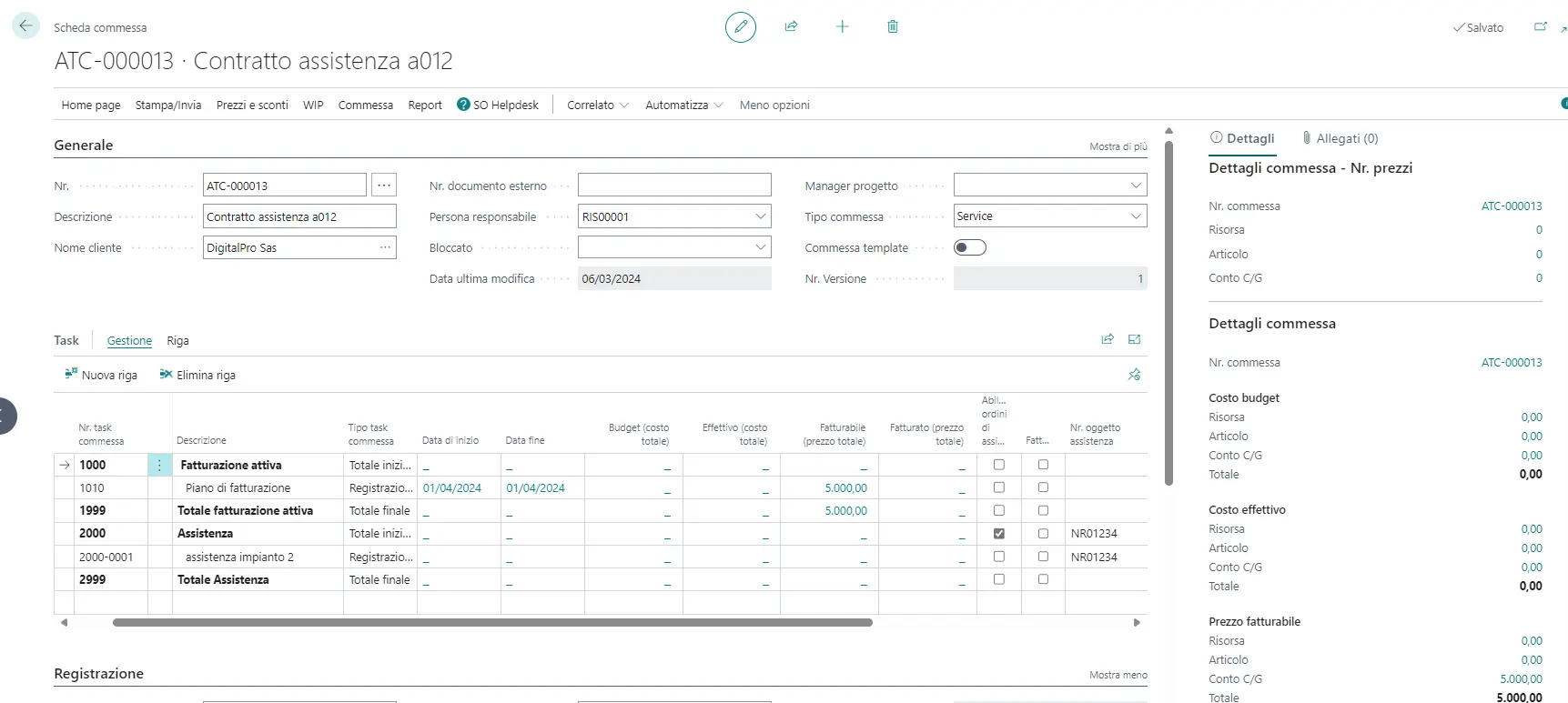
Request for assistance manually or via interface with Microsoft Bookings
Assistance requests can be made through "traditional" channels (email, phone calls, etc.) or through the So Smart interface with the Microsoft 365 Bookings solution, an excellent tool for creating different services based on customer requests and required skills.
It allows the creation of booking pages that can be shared directly with the customer or managed internally for appointment scheduling.
Here are some of the key benefits: setting predefined service hours, reminder emails before the appointment, and optional feedback request emails at the end of the intervention.
Support orders
During the intervention, the operator will open a service order. With a single tool, they will be able to manage all necessary scenarios:
- Consumption of components under warranty or billable
- Reporting of billable or non-billable working hours
- Component replacement
- Return of components for repair
- Sending a component to a third-party supplier with the creation of a purchase order for the processing service
- Return of the repaired component from the third-party supplier
- Shipment of the repaired component to the customer
- Printing and emailing the work report
- Automatic reporting of costs and amounts to be invoiced upon registration of the service order
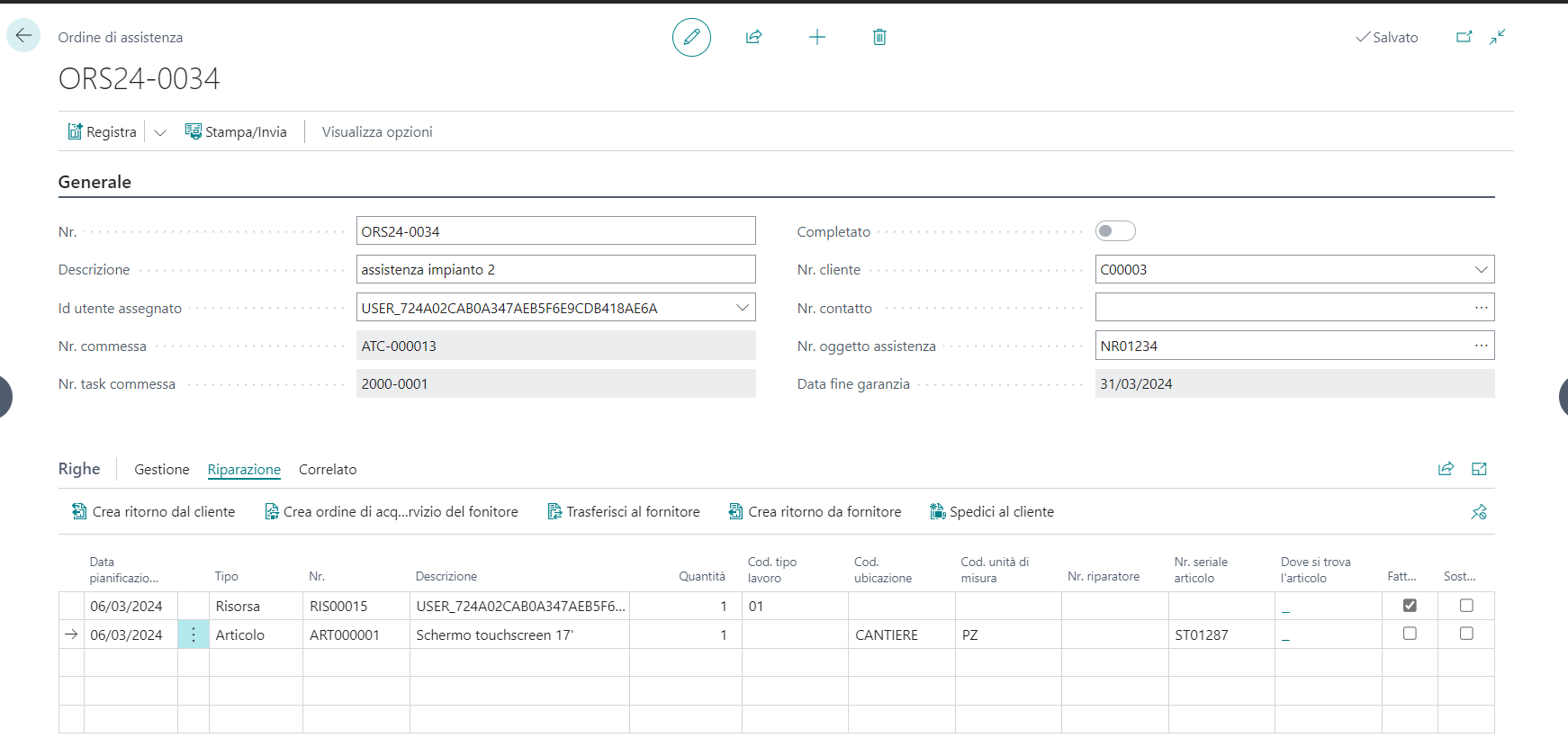
Cumulative active invoicing
With periodic billing fueled by registered contracts and service orders, say goodbye to chasing operators for paper work reports, Excel sheets to monitor periodic billing deadlines, emails, and the risk of errors.
With just a few clicks, sales invoices are created based on the periodic billing plan specified in the contract and movements recorded as "billable."
Contract monitoring and marginality analysis
The progress of the service order can be easily analyzed directly in the tab. The marginality is under control and the detail of related service orders is always reachable, as well as the service object.
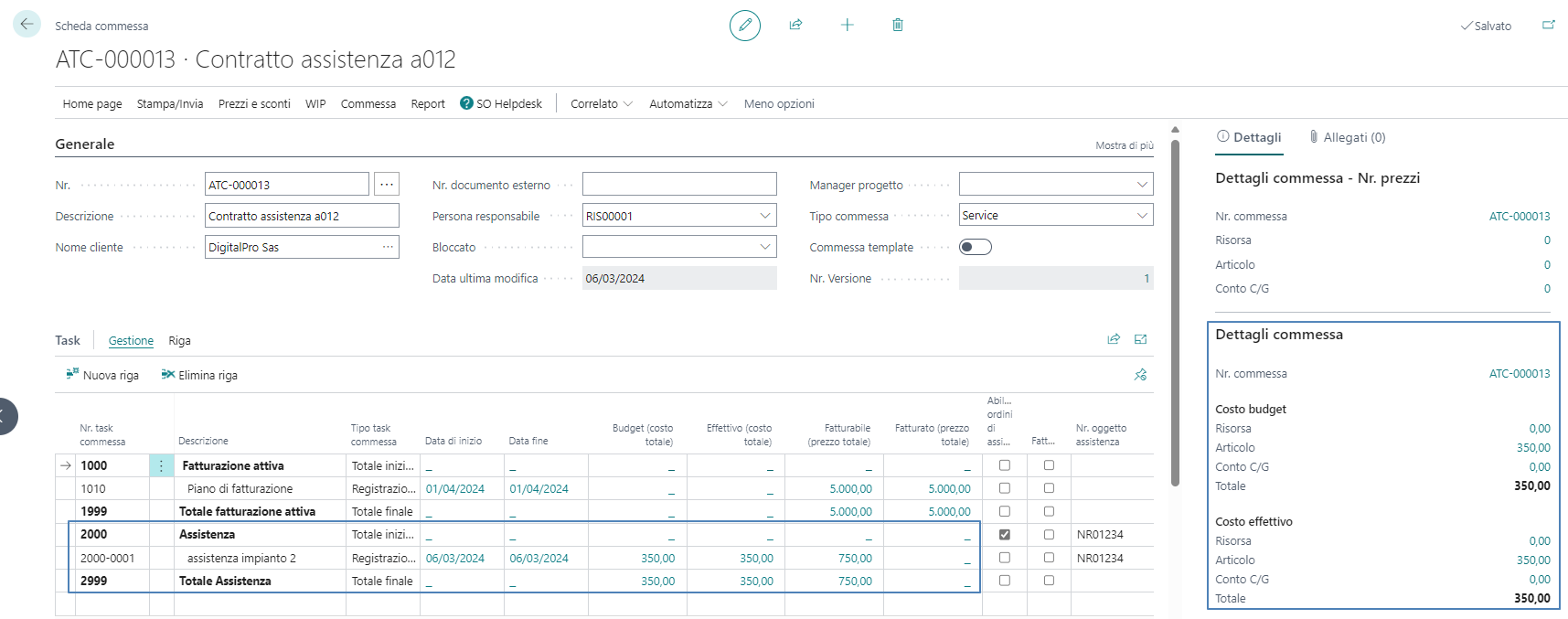
For a more comprehensive view, it is possible to analyze project data with the "Projects Analysis" BI reports included in Smart BI:
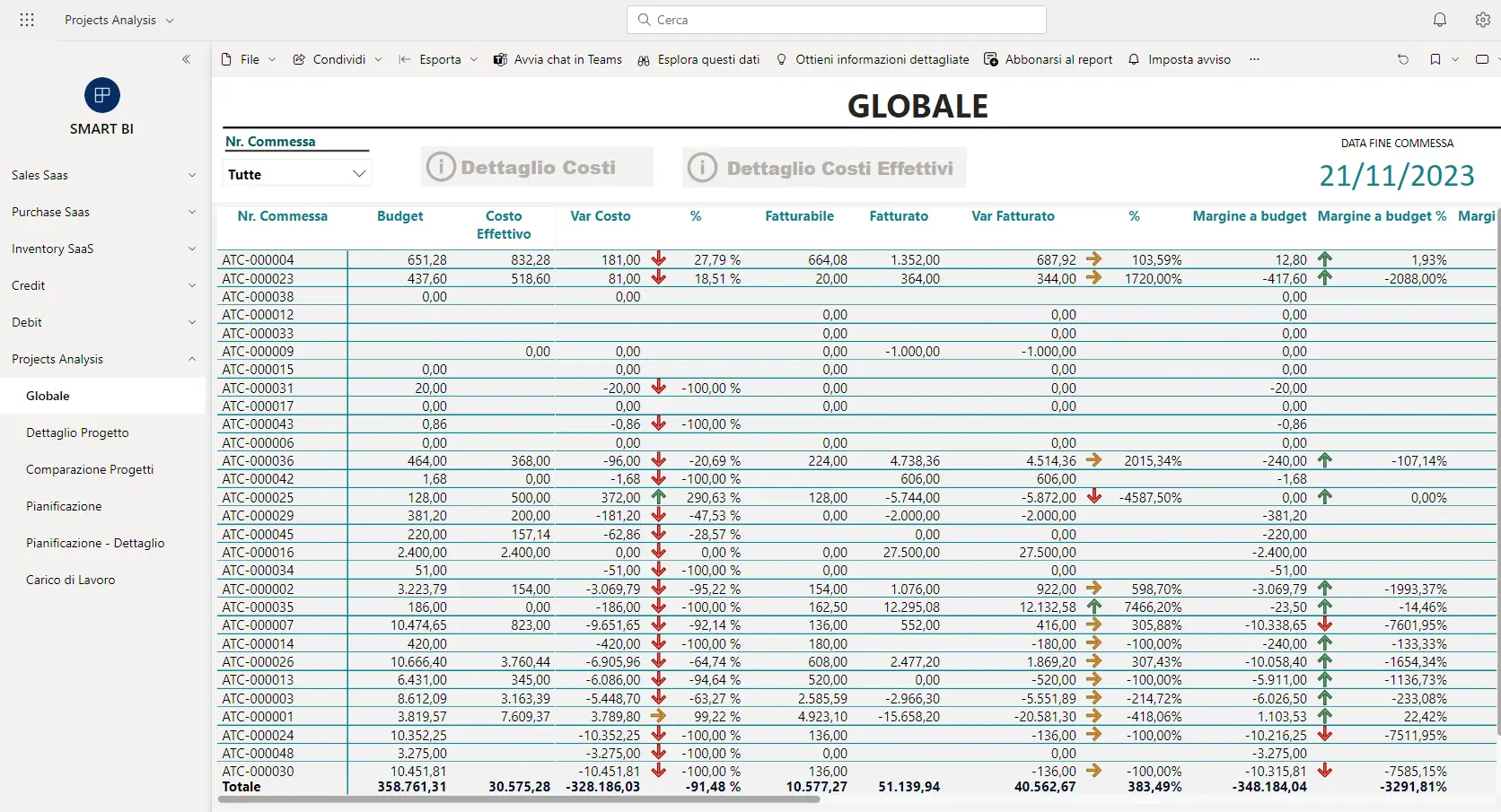
Integration with the Human Resources App
Finally, integration with other So Smart Apps is ensured. In particular, if the Human Resources App is active, and therefore, personnel hours reporting with the timesheet, once the service order is registered, the hours worked are automatically suggested in the resource's attendance sheet.
In conclusion, many scenarios to manage and one simple tool to do it. After-sales service interventions have never been so under control!
So Smart is the simplest and quickest way to enter the world of Microsoft Dynamics 365 Business Central. The solution that helps you automate processes, monitor real-time data, generate analytical reports, and ensure compliance. The After-Sales Support App is an essential tool for companies involved in designing and implementing systems and infrastructures. So Smart is the cloud solution accessible from any browser, and in addition to your computer, you can also access it from your smartphone or tablet by installing the dedicated app, allowing you to monitor and plan your activities at any time, and it is 100% Microsoft software.
